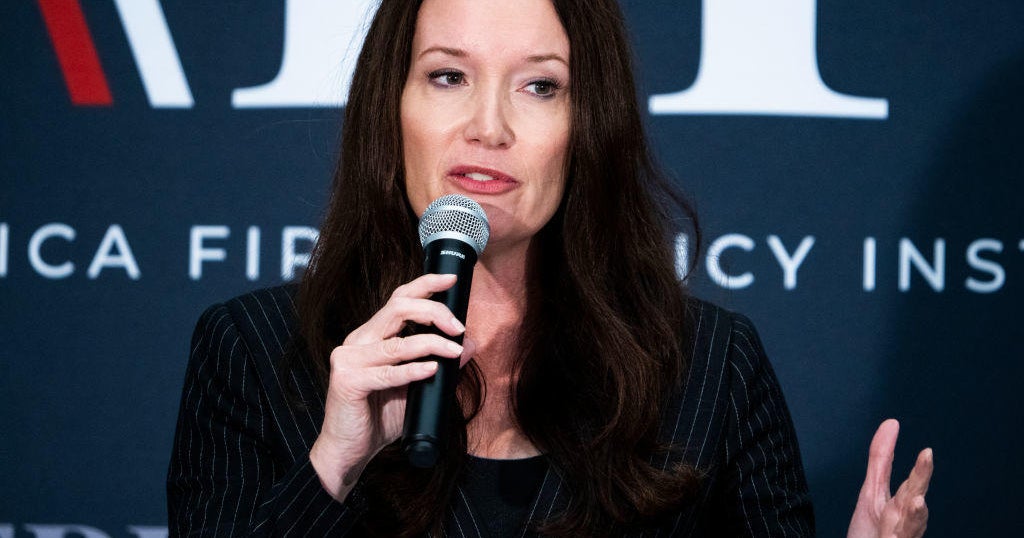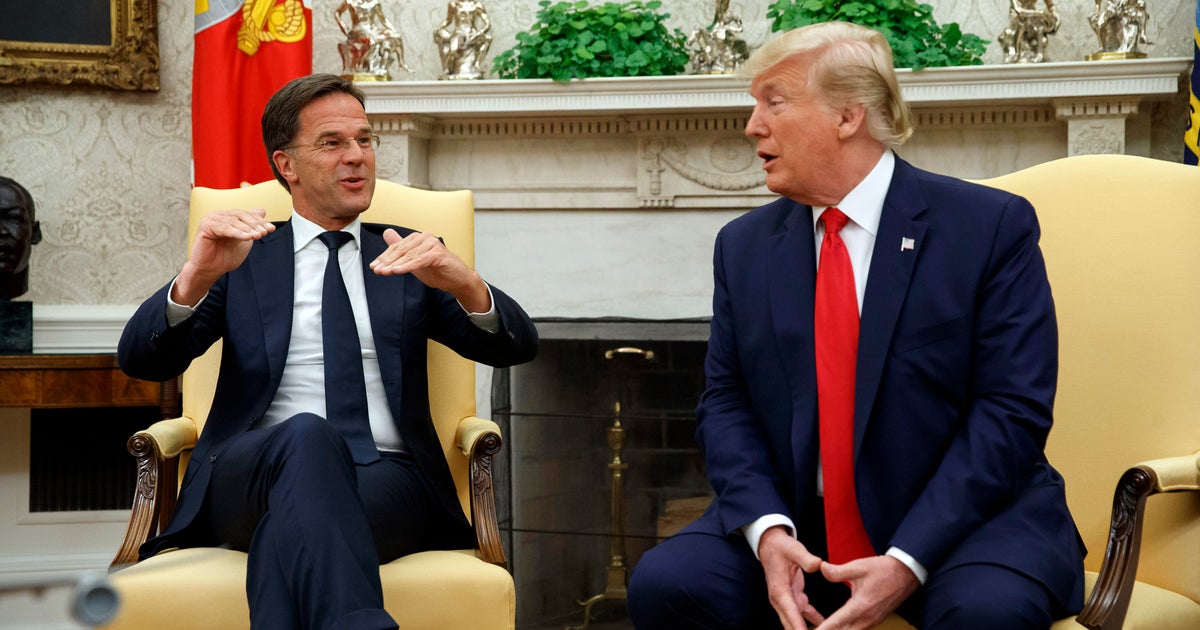Anti-Trump Republican groups urge GOP voters to support Joe Biden for president
As the general election unofficially kicks off, presumptive Democratic presidential nominee Joe Biden is being aided by an unusual array of groups for a presidential election. What makes them an oddity is that they are Republican. A growing number of GOP organizations are moving forward with strategic efforts to unseat a commander-in-chief of their own party — and turn the White House over to a Democrat.
Appalled by Donald Trump's presidency, they are spending millions on television ads and digital campaigns and weighing ground efforts in an election year that has seen a global pandemic and major economic crisis following the impeachment trial of the president earlier this year.
"We haven't really ever seen anything like this before in a general election," said Mitchell West, of Kantar/Campaign Media Analysis Group. "In primaries, there's always one Republican group that supports one specific Republican candidate and will obviously bash some others, but in terms of a general election, usually you don't see anything like this."
From April through June, The Lincoln Project raised more than $16.8 million, rivaling several prominent Democratic PACs after raising less than $2 million in the first quarter of 2020. The Lincoln Project, whose founders include George Conway, a prominent Trump critic who is married to White House counselor Kellyanne Conway, views this president as an existential threat to the nation, a "clear and present danger to the Constitution and our Republic."
The Lincoln Project's recent financial filing shows donations flooded in from all over the country. According to the group, the average contribution was around $56.
Its first anti-Trump ad aired in March, but it was the "Mourning in America" ad in early May that really launched the group, attacking Mr. Trump's handling of the economy and coronavirus. The spot was a twist on President Reagan's 1984 reelection campaign ad and attracted the attention of the president when it appeared on Fox News. Mr. Trump blasted the group on Twitter, inadvertently helping the Lincoln Project raise about $2 million in 24 hours.
"He saw the ad, it did what we wanted it to do, and we have been the beneficiaries organizationally of his inability or unwillingness to not respond to things that we know are his weak points," said The Lincoln Project co-founder Reed Galen. The group has since churned out videos on the coronavirus response, Confederate flags, reported bounties on U.S troops and more. "That's the advantage of being independent of everybody… we say we think this going to move, this is going to hit, and we go do it."
According to Kantar/CMAG, The Lincoln Project has spent nearly $4 million on advertising since March. Now as the general election nears, the group plans to take the fight directly into battleground states to target "soft Republican" and conservative-leaning independent voters. While it plans to continue with targeted advertising, the group also has a rapidly growing army of volunteers including some 3,000 in Michigan.
"I think we will be contacting voters directly," Galen told CBS News. "I think the effectiveness of our messaging creates a potent combination to get in front of these voters who you can convince to make sure they get out and vote for Joe Biden, and if they're not going to vote for Joe Biden, then leave Donald Trump blank."
At the same time, Republican Voters against Trump is also going after similar voters, but with a slightly different approach, one that seeks to make Republican voters comfortable with the idea of not supporting their party's incumbent nominee, even if they voted for him in 2016.
"I've been a Republican for more than 30 years in western North Carolina, and I find myself for the first time in many years not able to vote for a Republican," said Steve in one video on the project's website. The project has been compiling hundreds of testimonials from GOP voters in all fifty states.
"I voted for Donald Trump four years ago because I didn't trust Hillary. That was a mistake," said Craig from Colorado in another video. While some voters focus on what's made them turn their backs on Mr. Trump, other voters talk about why they'll be voting for Biden.
"What people were most persuaded by was real stories from real people, so basically we decided to build a project around that for 2020," said Republican Voters against Trump founder Sarah Longwell. The initiative, which is a project of Defending Democracy Together – the organization founded by conservatives including Bill Kristol – is now using the videos in its $10 million campaign to digitally target voters in five states: Michigan, Wisconsin, Pennsylvania, North Carolina and Arizona. Testimonials have also been used as TV ads.
But while a series of recent polls have shown Biden with at least a slight edge, these groups are aware that the president retains a strong base of unshakable Republican support. According to a Quinnipiac University poll released Wednesday, Mr. Trump would have the support of 84% of Republicans.
Where Anti-Trump Republicans see an opening is in the three states won by the president in 2016 by the slimmest of margins over Hillary Clinton. The presumptive Democratic nominee helps . According to Longwell, early focus groups viewed far left Bernie Sanders as a "nonstarter," but Biden is "not nearly as big a lift for a lot of these right-leaning independents." He puts the crucial suburbs into play.
"A lot of the women who would consider themselves Republican or right-leaning, who voted for Mitt Romney, who voted for John McCain — those are the people who are moving out of the party fastest, or moving away from Donald Trump the fastest," said Longwell.
That's what some former George W. Bush administration officials also believe. At the beginning of July, they launched 43 Alumni for Joe Biden PAC. The galvanizing moment for the PAC founders was the attack on protesters in Lafayette Park in June.
"Our goal is to really give those folks who either still identify themselves as Republicans or those who have left the party or view that the party has left them permission to vote for Joe Biden, given the circumstances the country is in right now and needing to move in a new direction," said John Farner.
The PAC aims to be a grassroots volunteer-based effort that uses the substantial Bush alumni network to engage Republicans and independents who have traditionally voted for Republicans. Those signing up to get involved online are asked how they would like to help — on fundraising, field operations or online. The PAC expects to have a strong digital push as well as a get-out-the-vote effort, depending on what the coronavirus landscape looks like in the fall.
"There are a lot of people who have never voted for a Democrat for president before," said Kristopher Purcell. "We feel we can talk to those voters very well."



